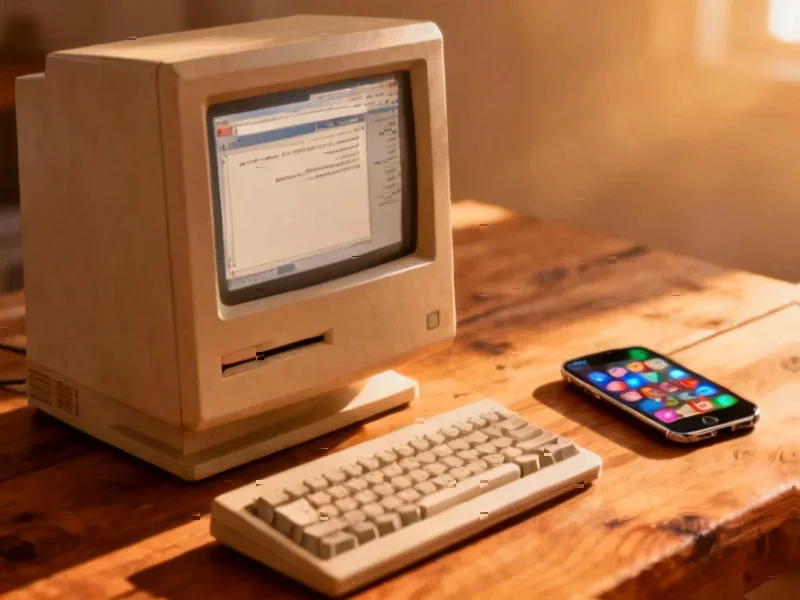According to DCD, Elon Musk’s SpaceX is exploring the acquisition of satellite communications company Globalstar, with shares in the Louisiana-based firm rising 24% following the report. The discussions are in early stages, with Globalstar receiving assistance from an unnamed investment bank, though the company could potentially remain independent. Apple’s involvement is crucial given their $1.5 billion investment in Globalstar late last year, which secured 85% of Globalstar’s network capacity for iPhone communication services. Globalstar operates a 31-satellite low-Earth orbit constellation with 26 additional satellites planned for launch by SpaceX, and previous reports suggested the company sought over $10 billion in sale discussions, well above its then $5.3 billion market cap. This potential acquisition represents SpaceX’s latest strategic move in the rapidly evolving satellite connectivity space.
The Spectrum Play That Changes Everything
SpaceX’s interest in Globalstar represents far more than just acquiring another satellite operator—it’s a strategic spectrum grab that could fundamentally alter the competitive landscape. Globalstar holds valuable radio spectrum licenses in the 2.4 GHz and 1.6/2.5 GHz bands that are particularly well-suited for satellite-to-smartphone communications. Unlike Starlink’s current model requiring specialized equipment, acquiring Globalstar would give SpaceX immediate access to spectrum optimized for direct-to-device connectivity. This aligns perfectly with SpaceX President Gwynne Shotwell’s recent comments about “providing wholesale capacity” to telecommunications partners, essentially positioning SpaceX as an infrastructure provider rather than a consumer-facing competitor to traditional carriers.
The Apple Factor: Partnership or Power Struggle?
The most fascinating aspect of this potential acquisition is Apple’s existing $1.5 billion stake in Globalstar, which according to The Information represents a complex web of existing relationships and failed negotiations. Three years ago, Musk reportedly pitched Apple on using Starlink infrastructure, but Apple instead chose Globalstar for its emergency satellite services on iPhone 14 and newer models. Now, SpaceX could essentially acquire Apple’s satellite partner, creating an incredibly delicate negotiation dynamic. Apple’s contract securing 85% of Globalstar’s network capacity means any acquisition would require renegotiating terms with one of the world’s most valuable companies—or potentially facing contractual complications that could derail the entire deal.
Shifting Satellite Connectivity Economics
This potential acquisition signals SpaceX’s recognition that the future of satellite connectivity isn’t just about broadband internet—it’s about integrated terrestrial-satellite networks. By combining Starlink’s massive constellation with Globalstar’s direct-to-device expertise and spectrum assets, SpaceX could create a vertically integrated offering that spans from high-speed broadband to emergency messaging. The timing is particularly strategic as competitors like AST SpaceMobile, Lynk, and Amazon’s Project Kuiper are all racing to establish their own satellite-to-smartphone services. At a potential $10+ billion valuation, SpaceX would be paying a premium for speed to market and spectrum assets that would take years and regulatory battles to develop independently.
Why This Deal Faces Unique Challenges
The leaked nature of these discussions creates immediate complications for any potential acquisition. Globalstar’s 24% stock surge following the Bloomberg report means SpaceX would now be negotiating at inflated prices, potentially adding billions to the acquisition cost. This suggests the leak may have been strategically timed by parties with vested interests—either to drive up the price for shareholders or to complicate negotiations enough to scuttle the deal entirely. Additionally, regulatory scrutiny would be intense given SpaceX’s growing dominance in satellite communications and the critical nature of spectrum assets. The company’s recent $17 billion agreement with Echostar for terrestrial spectrum shows they’re already thinking comprehensively about integrated network assets, but acquiring Globalstar would represent a much more direct move into Apple’s strategic territory.
The Endgame in Satellite Connectivity
If successful, this acquisition would represent Musk’s second attempt to partner with Apple on satellite connectivity, but this time from a position of ownership rather than supplication. The strategic implications extend far beyond just emergency messaging—it positions SpaceX as the essential infrastructure provider for the next generation of global connectivity. Rather than competing with telecommunications companies, SpaceX appears to be building a wholesale model where they provide the satellite backbone while carriers handle customer relationships. This approach could ultimately prove more profitable and scalable than consumer-facing services, while avoiding the regulatory battles that come with directly challenging entrenched telecom interests. The question remains whether Apple will see this as an opportunity for deeper partnership or a threat to their carefully constructed satellite strategy.




